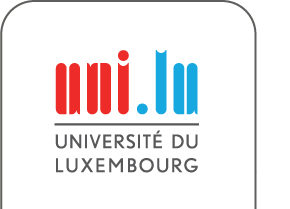Symposium on “Advanced Multi-scale Simulation Tools in Additive Manufacturing” at WCCM2018
Abstract
Additive manufacturing, also known as 3D printing, processes synthesise a three- dimensional object by adding successive layers of materials under computer control and is sometimes referred to as the fourth industrial revolution or Industry 4.0. In its broad sense additive manufacturing includes processes such as binder jetting, directed energy deposition, material extrusion, material jetting, powder bed fusion, sheet lamination and vat photo-polymerisation that apply a variety of materials such as polymeric materials, biological materials, ceramic materials and metallic materials These technologies combine geometric flexibility with the freedom to design complex structures. Despite revolutionary design capabilities, each process in additive manufacturing depends on many parameters such as temperature, material and printing rate that have a tremendous effect on the final product because it involves a many scales in time and space. Temporal scales cover nano-seconds to hours, whereas vary from the atomistic level to the global dimensions of the product. Furthermore, a variety of physics occurs among them mechanical, thermal, radiation and phase change problems. Therefore, any simulation approach has to address both multi-physics and multi-scale challenges that are not unique to additive manufacturing. Similar problems in other domains of science and engineering triggered the development of approaches such as reduced order or surrogate modelling, FE2-methods, coupled Euler-Lagrange methods or data analysis in conjunction with numerical simulation. These methods and newly developed numerical tools may be adopted and further developed to be employed to additive manufacturing. Therefore, this mini-symposium serves as a platform to bring together scientists and researchers developing advanced simulation tools for additive manufacturing emphasizing the multi-physics and multi-scale aspect. The target of the symposium is to explore both similarities of simulation methodologies and its application from other domains in science and technology but also novel and advanced simulation approaches in additive manufacturing. Topics of the session include in a broad sense:
• Multi-scale techniques
• Multi-physics approaches e.g. melting solidification
• Mathematical modelling
• Numerical solution techniques
• Scale-bridging approaches
• Metallurgical models e.g. microstructure evolution or defect formation
• Material and property modelling e.g. thermo-plasticity, thermo-viscoelasticity or residual stress
• Powder material models
• Validation, verification and uncertainty quantification (VVUQ)
• Industrial applications
